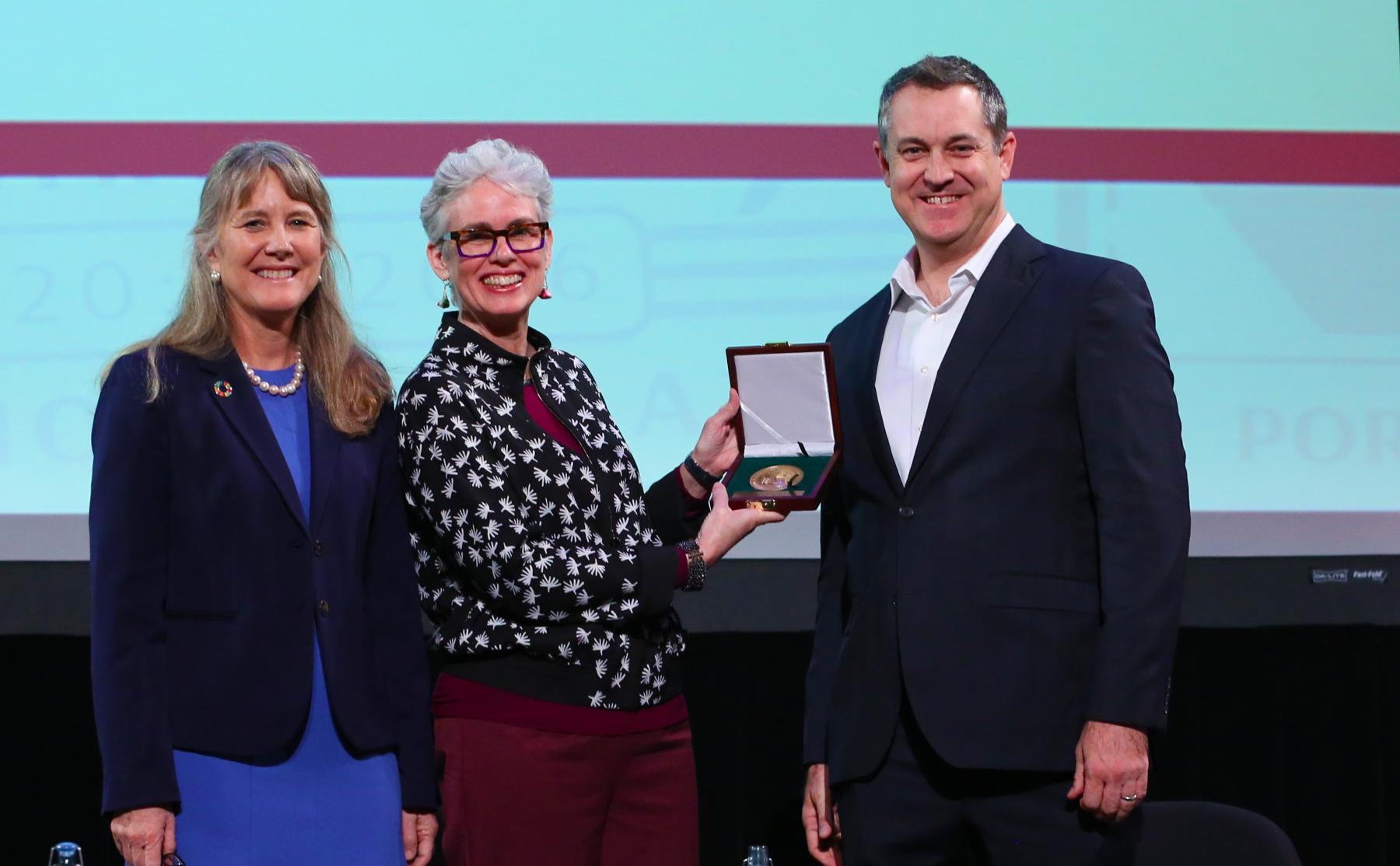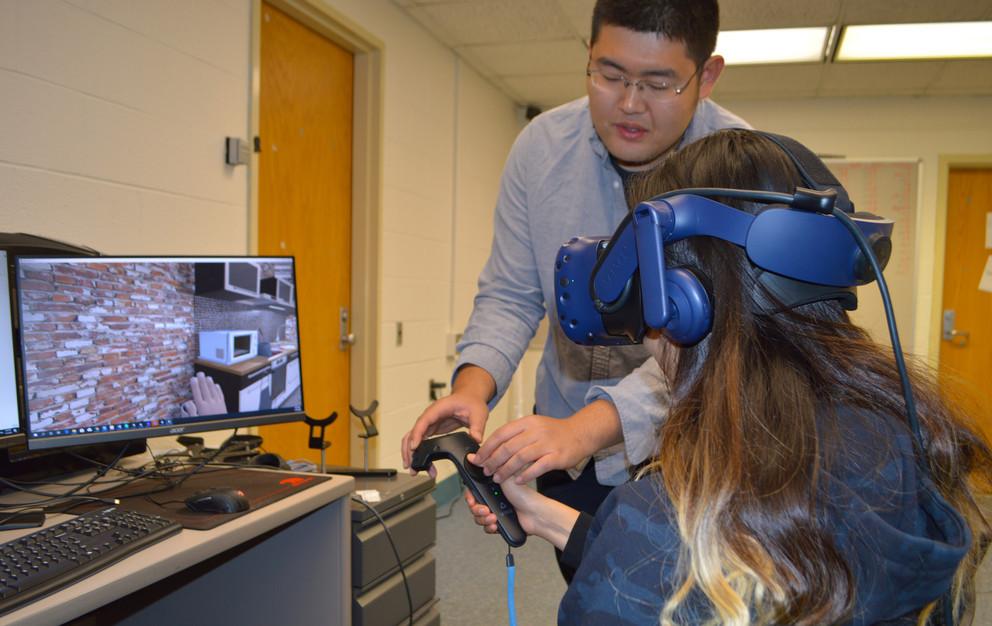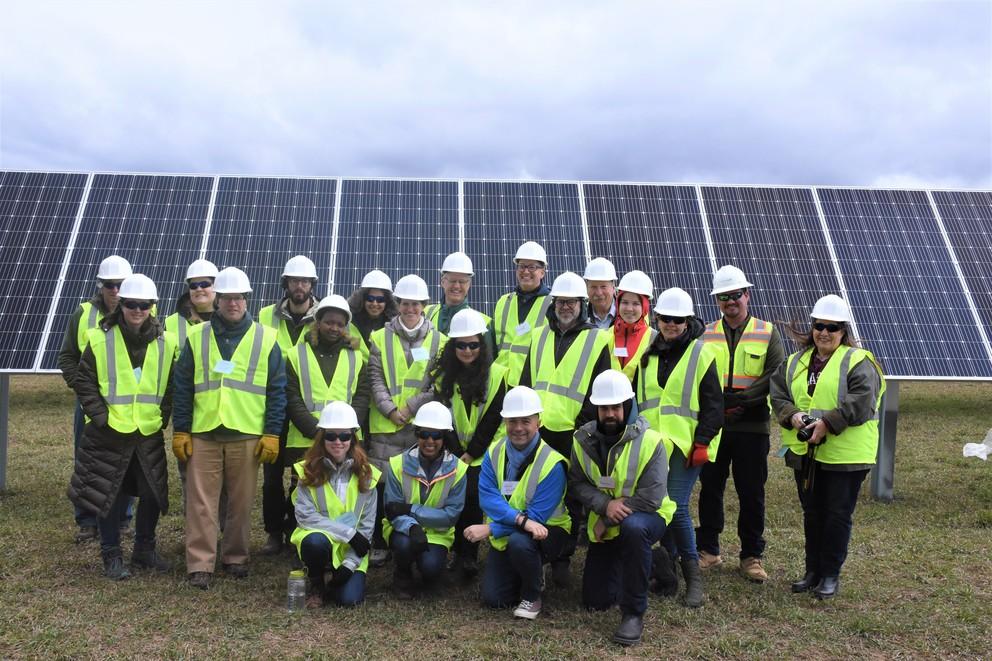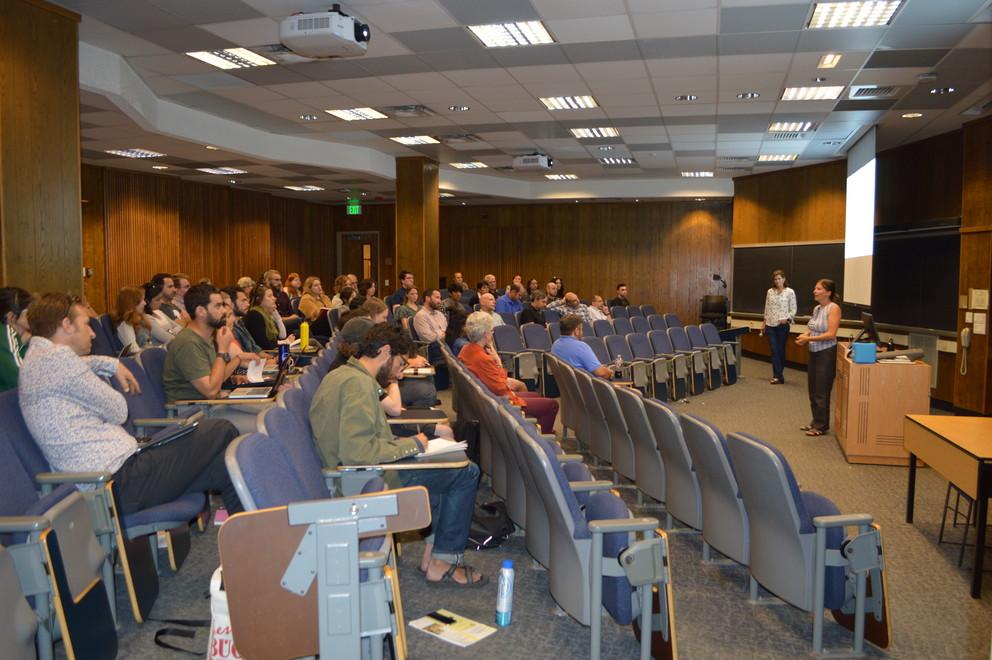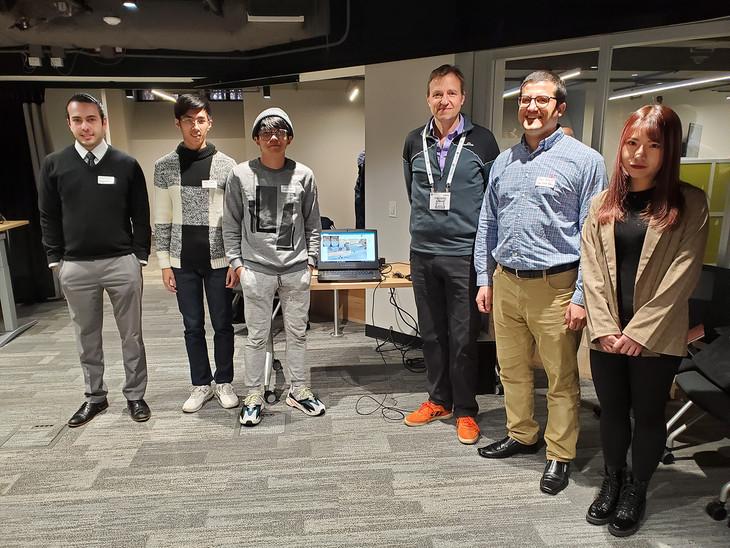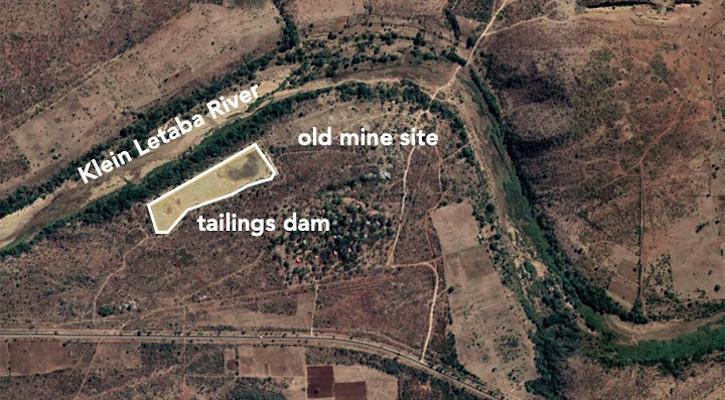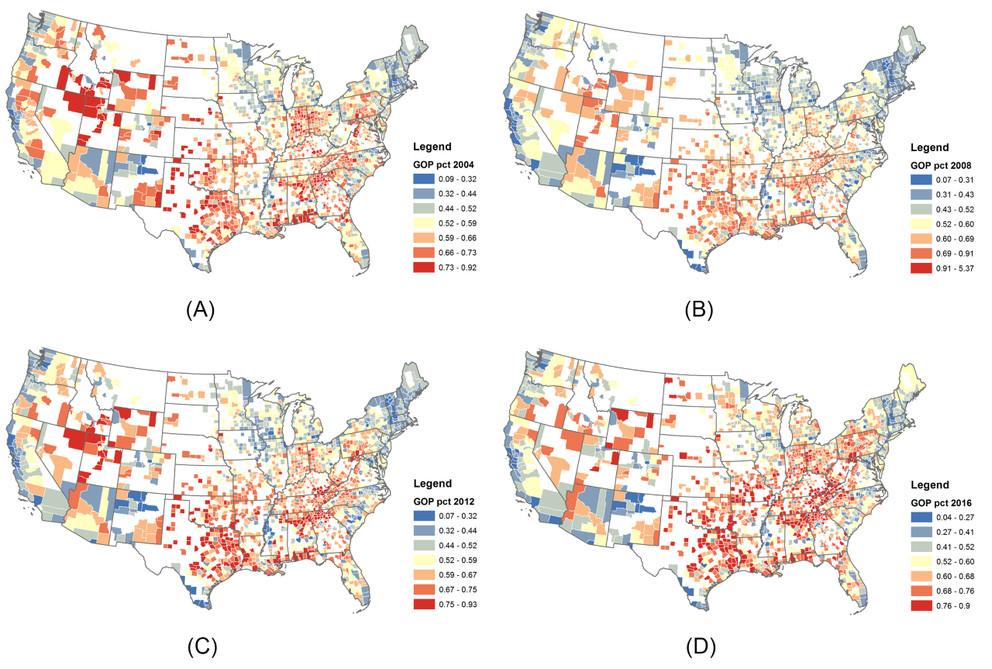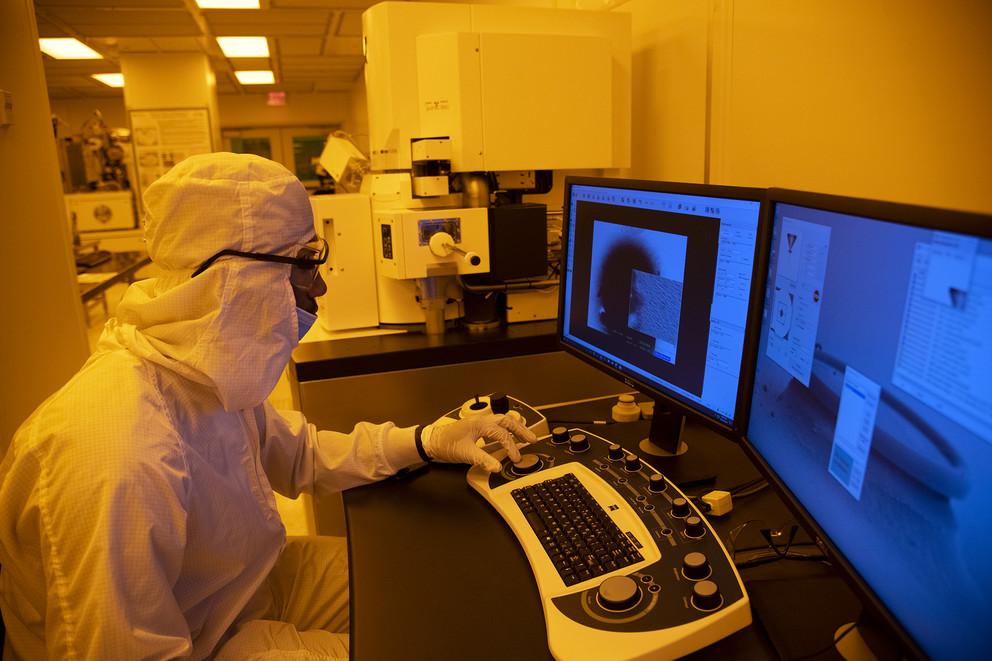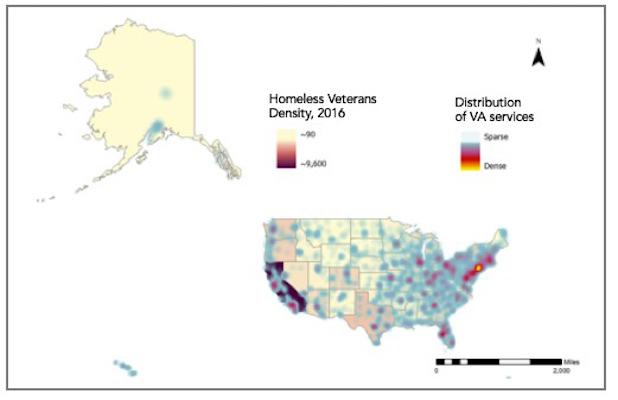There can be tensions when a large company makes a multi-million-dollar deal with a community to build facilities. Tensions can be even higher if the company is a fossil fuel company.
In a situation like that, those who are for economic development can be viewed as in opposition to environmental protection. Those who want to preserve the environment can be viewed as anti-jobs. Additionally, there are those in the community whose voices are never heard, those who feel left out of the process.
Jennifer Baka, a cofunded faculty member in the Institutes of Energy and the Environment, understands these tensions. Growing up in a small coal mining town outside of Scranton, Pennsylvania, she saw how industry could affect an entire community.
If you have consulted or created a map using GIS software, chances are you have encountered Cynthia Brewer's influence without being aware of it. In recognition of her contributions to the field of cartography, Brewer, who is professor and head of the Penn State Department of Geography, was awarded the O. M. Miller Cartographic Medal by the American Geographical Society at the 2019 Fall Symposium.
“I was surprised to receive this honor,” Brewer said, “and appreciative of the opportunity at the symposium to spend time with leaders in geography.”
“When your name or brand becomes the default for your area, you know you're at the top of your field. Cynthia Brewer has that claim,” said Deborah Popper, chair of the AGS Honors and Awards Committee.
Virtual reality is becoming more widespread in gaming, shopping, research, education and training, but is not a perfect match to the real world. Discrepancies create usability problems with accessing virtual tools, or getting distracted, confused, lost or cybersick. Jiayan Zhao, a doctoral student in the Department of Geography in the College of Earth and Mineral Sciences and a developer at the Center for Immersive Experiences, is conducting experiments to reduce usability problems and improve the user’s virtual experience.
“From the perspective of spatial cognition, the virtual environment can largely simulate the actual environment, but some users experienced serious motion sickness — something we don’t want to have happen— and they could not finish the experiment or their data could not be used,” Zhao said. “There are huge individual differences in virtual experiences. Some people may already have had experience with VR, so they performed well, but for those who never used VR before, they had challenges in performing the tasks.”
From the edge of the farm, the completed solar arrays and those under construction seemed to never end. In reality, they occupied only a small area of Pennsylvania land in rural Franklin County, but the arrays possessed a much larger potential, which a group of Penn State faculty and graduate students had traveled two hours to see.
The Penn State scientists who visited the site are part of the first cohort of LandscapeU, a National Science Foundation Research Traineeship program that brings together graduate researchers from across the University to study the food-energy-water system in the Chesapeake Bay watershed and beyond. The visit to the solar farm, which is owned and operated by Lightsource BP on about 500 acres leased from local landowners, was the program’s first research field trip.
The Department of Geography Coffee Hour lecture series resumes on Friday afternoons beginning Jan. 31 through April 24 for the spring 2020 semester on Penn State's University Park campus.
Coffee Hour is a weekly lecture series hosted by the Department of Geography celebrating interdisciplinary scholarship and collegiality. Topics range from innovations in GIScience, to food security to land use and justice issues, among others. Anyone with an interest in the topic is invited to attend.
Unless otherwise noted, refreshments are offered beginning at 3:30 p.m. in the E. Willard Miller seminar room, 319 Walker Building, and at 4 p.m. the lecture begins in the John J. Cahir Auditorium, 112 Walker Building.
The lecture is also webcast and is accessible for viewing online.
When the newly established Center for Immersive Experiences (CIE) hosted an immersive technology open house on Nov. 12 at the University Park campus, Penn State Great Valley had a strong presence, with Ashkan Negahban, assistant professor of engineering management, and his research team demonstrating their immersive simulation-based learning (I-SBL) approach.
Negahban’s project focuses on transforming online and on-campus education through immersive learning modules, and brings together researchers from Penn State Erie, The Behrend College; Penn State Abington; and Penn State World Campus. The modules create a digital solution for problem-based learning, a pedagogical approach that immerses students in a real-world situation.
Is there a way to turn waste into a useful resource and at the same time reduce environmental degradation from closed mines? That’s what visiting South African scholar Nemapate Ndivhuwo wants to find out.
Ndivhuwo visited Penn State during fall semester 2019 from the University of Venda, in Limpopo Province, South Africa, as part of its University Capacity Development Programme.
The program is a partnership between three South African universities: the University of Venda, University of Cape Town and University of Fort Hare, with two U.S. universities: the University of Arizona and Penn State, said Brian King, professor of geography in the College of Earth and Mineral Sciences, and Ndivhuwo’s sponsor.
It may not be just location, location, location that influences where people move to in the United States, but also politics, politics, politics, according to a team of researchers.
In a study of county-to-county migration patterns in the U.S., the researchers found that when people migrate, they tend to move to other counties that reflect their political preferences. They added that the pattern also suggests that people moving from moderate partisan counties are just as likely to move to extreme partisan counties as they are to move to other moderate counties. However, people who live in a politically extreme county are significantly likely to move to a similarly extreme county.
This type of political sorting might turn extreme counties into “magnets” that pull people from moderate counties and exchange them with other extreme counties.
David Kubarek
November 20, 2019
Growing up in a segregated part of Washington, D.C., in the 1970s, Tony Hutchinson didn’t see a lot of the kids in his neighborhood going on to college. Even though several members of his family had graduated from teacher’s colleges — for him — it didn’t seem like an option.
That all changed — through the help of role models in his life — and he graduated from Penn State’s Department of Geography in 1990 before beginning a decades-long career using data analysis to drive home lending decisions.
Female veterans are the fastest growing demographic among the homeless population in the United States and face a double hurdle of distance and invisibility in getting the health services they need from the U.S. Department of Veterans Affairs, according to research conducted by Penn State graduate student and U.S. Air Force veteran Elizabeth Elsea.
Elsea conducted a geospatial analysis of veterans for final project for her master of professional studies in homeland security (geospatial intelligence option). Her analysis showed that VA services, originally established in locations meant to support a nation of young men drafted to fight two world wars, are no longer optimally situated to serve a shifting veteran population and female veterans specifically.



